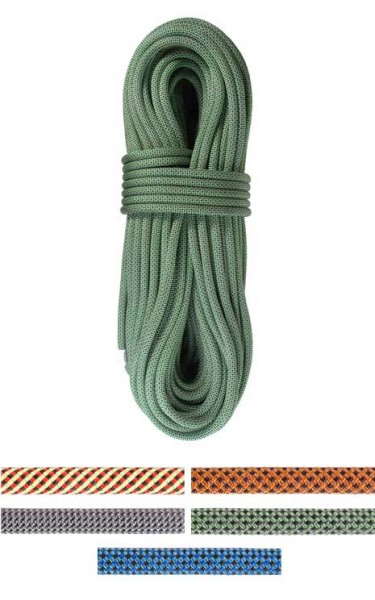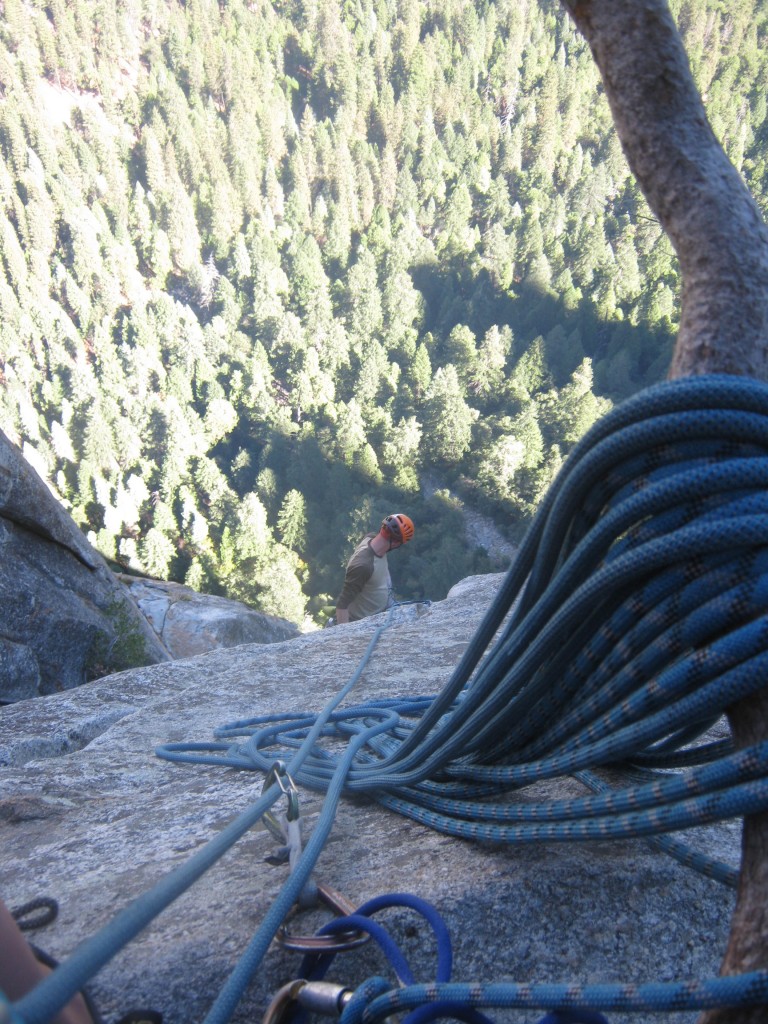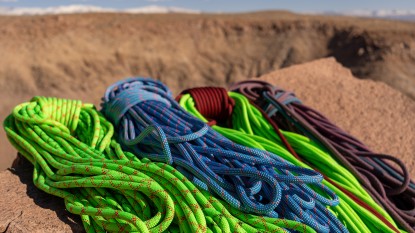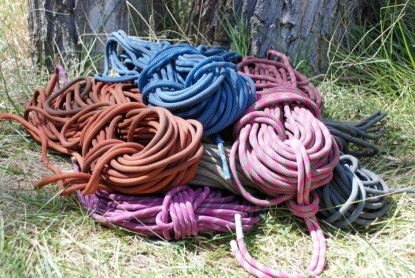BlueWater Eliminator Review
Our Verdict
Our Analysis and Test Results
Performance Comparison
10.2 Workhorse Rope
Weight
For a 10.2 mm rope, this rope is on the lighter side. It weighs in at 64g/m while most other ropes of this diameter are 66g/m, which over the whole length of the rope adds up to make a difference. If using a workhorse rope for the extra durability, having a little less weight to carry is a bonus, and the Eliminator stands out in that respect.
Handling
The Eliminator has smooth handling and feed for a thicker rope.
Durability
After only a couple climbs we noticed a couple frayed threads sticking out. Granted, this rope had been running over rough granite, but ideally, it would take longer than a day or two for frayed threads to poke out their heads. Ropes like the Mammut Infinity and Mammut Revelation take longer to fray because of their Teflon coating. The BlueWater Pulse also lasts noticeably longer since it has a thicker sheath.
Options and Other Versions
BlueWater does not put middle-marks on their ropes, but they do produce bi-pattern ropes. The Eliminator comes in this option
Personal Stories
We tested the bi-pattern version of this rope on a climb in Yosemite Valley with 15 rappels as the descent. Having a bi-pattern was fantastic for this application, it really sped things up and made us confident that our rope was positioned properly so we wouldn't rap down to uneven ends. If you plan on doing a lot of multi-pitch climbing with rappel descents, or you plan on doing a lot of rapping to clean anchors when cragging, we suggest looking into a bi-pattern rope, even though its costs slightly more.
Best Application
The Eliminator is a workhorse rope, but is versatile enough for all types of climbing. It's thick enough to handle repeated top-roping and jugging up big walls, but it is smooth enough for multi-pitch or sport cragging. BlueWater says it is even good for "dogging," or hanging your way up your project. Then, when it is time to redpoint, bust out a super skinny sending rope like the Sterling Fusion Nano.
Value
If you buy the standard 60m version, the BlueWater Eliminator is very comparable in price to the Mammut Tusk and the BlueWater Pulse, ringing in on the inexpensive end. Buying the bi-pattern option means adding an extra $35. In either case, your money would be going to a well made and reliable rope, so you can let your budget determine what extra features (bi-pattern, dry treatment, etc.) you get with it.





